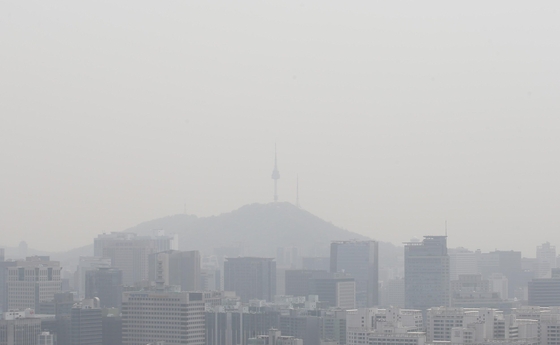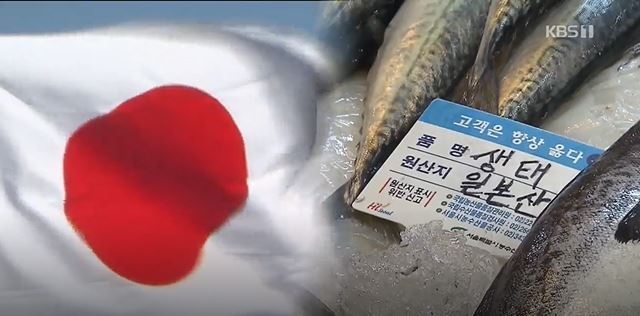|
The fine dust disaster in the Korean Peninsula has become a thorny diplomatic issue between Korea and China. On March 6, President Moon Jae-in ordered the emergency preparation in cooperation with the Chinese government to minimize the impact of fine dust from China. However, the day after, Chinese Ministry of Foreign Affairs spokesperson Lu Kang refuted, “We are not certain that there is sufficient evidence to prove that Korea’s fine dust originates from China,” claiming Moon’s comment as a diplomatic gaffe. South Korea’s minister of Foreign Affairs Kang Gyeong-hwa also took a stance to point out that there definitely exists Chinese origins, but the Chinese government refused to acknowledge it.
| |
 |
|
| |
In addition to the fine dust problem, the issue surrounding seafood import from Japan will surface around April 11. It the final verdict from WTO will be made regarding the Korea government’s ban on seafood imports from Japan following the Fukushima Nuclear Plant Incident in March 2011. If Korea loses the suit and resumes import, there will be another element of conflict between Korea and Japan, added to the indemnification of forced labor mobilization by Nippon Steel & Sumitomo Metal during the Japanese colonial occupation. Fine dust from China and seafood import from Fukushima are putting Korea’s environmental diplomacy on the line.
Ban to Step Up amid Fine Dust Debacle in Korea-China Relations
Though fine dust has become a serious matter, recently categorized as “society-wide disaster” in disaster management law, but there is no conclusion yet over the debate with China over whose fault it is. At the Korea-China Commission for Environmental Cooperation in January this year, both nations only confirmed their differences. According to the Ministry of Foreign Affairs and the Ministry of Environment, China asserted that “Since 2013, the overall environmental quality of China has improved, including Beijing and major cities’ air quality by over 40%.” Through their Struggle to Protect the Blue Sky, they’ve also determined the specific objective to decrease the levels in Shanxi and Shandong Provinces.
On the other hand, according to the analysis of ultrafine dust (PM 2.5) concentration in air, undertaken by National Institute of Environmental Research between January 11-15 this year, the influence from China and North Korea amount to 69-82%. Professor Kim Sun-tae of Environmental and Safety Engineering at Ajou University says, “The systemization regarding fine dust in Korea started in 2015. The influence was complex from domestic, Chinese, and North Korean factors, and our initial task is to accumulate objective data to identify the cause and establish goals for reduction.”
Still, several obstacles are on the way. In August 2017, the ministers of Environment in Korea, China, and Japan had agreed to produce an LTP to identify the causes of fine dust, but it hasn’t been released because China rejected it based on the failure to reflect Beijing’s improved air quality data. While the report is set to be released in November this year, the composition process will also involve considerable difficulties. It’ll take even more time until any tangible result can be obtained based on it.
As such, voices that insist on the senior-level diplomatic intervention for fine dust issue are gaining traction. President Moon is considering a special envoy for fine dust. On March 12, he ordered the review of forming a pan-national institution to resolve the fine dust issue, headed by former UN Secretary-General Ban Ki-moon. Ban has agreed to take up the task on March 15.
Japan’s Economic Retaliation through Seafood from Fukushima?
The issue of importing marine products from Fukushima is another ticking bomb in Korea-Japan relations. In 2011, the Korea Food & Drug Administration (now the Ministry of Food and Drug Safety) prohibited the importation of partial agricultural produce and entirety of marine products. The Japanese government sued the Korean government at WTO in 2015, and it was ruled in February last year that Korea must resume the import. For now, it’s difficult to overturn WTO’s decision. Kim Jae-jin, an adviser at Korean National Diplomatic Academy, pointed out, “The issue over food items may be an even broader and more sensitive issue than the historical controversies. If our relations were normal, we might have discussed a postponement, but the issue could be aggravated at the current strained situation.”
| |
 |
|
| ▲ KBS NEWS |
However, even if WTO rules in favor of Japan, the import of Fukushima marine products will not resume right away. A government insider said, “As Korean citizens may react very sensitively to food-related issues, we will not resume the import immediately despite WTO’s decision.” In this case, Japan is allowed to request the implementation, then WTO will decide further on the failure of implementation, and Japan may initiate countermeasures. The amount of time for this process will take longer than a year, according to diplomatic experts.
Nonetheless, it is disconcerting that the Japanese government might link the countermeasure with historical controversies. Recently, Deputy Prime Minister and Minister of Finance Asō Tarō and other high-level bureaucrats are voicing their possible review of retaliation, such as an increase in tariffs. Though economic retaliation based on political reasons can be a violation of WTO regulations, it can be nominally treated as the countermeasure against the Korean government’s failure to implement the resumption of seafood imports.
Kim recommended, “Since we still have time, the Ministry of Foreign Affairs must engage in situation management and prepare in advance to prevent the unnecessary expansion of this issue into a historical controversy.” |






















